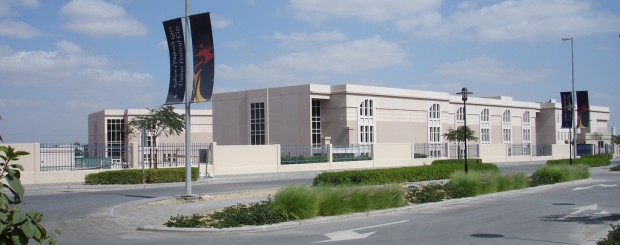The Essential Guide to Moving to Dubai to Teach
Teaching English in Dubai and other the countries of the Arabian Gulf has been, for at least the last quarter century, a kind of El Dorado: long holidays, a cheap and easy life-style with large salaries and no tax to pay on incomes earned.
Like all good myth and rumor, there’s some truth to all of the above, but these days, things “ain’t what they used to be.”
So, if you’re thinking of taking a teaching position in Dubai, or any other of the seven Emirates of the United Arab Emirates, you’d best be prepared and well informed about what you’re getting into if you sign on the dotted line.
Teaching – but what kind?
Broadly speaking, there are three kinds: teaching in pre-school or primary schools – known locally as K1-K7, teaching in High Schools K8-K12, and teaching at the Tertiary Level – Universities, Polytechnic/Community Colleges, or Technical Institutes. At the Tertiary level, your students will be adults – i.e. 18 and above. Some will be already in their workplaces, but granted some hours of release for further study.
I began the first paragraph with the words “Teaching English” quite deliberately, because no matter what you consider your specialist subject to be: Math, Engineering, Business and Finance, Music, or Art, for almost all of your students, English will be a second, or even third or fourth language.
Very few are likely to be what we would refer to as “mother-tongue” English speakers; therefore, your success or otherwise in your chosen field will very much depend on your ability to adjust the vocabulary and style of your delivery and materials to the level that allows actual learning to take place.
In Dubai schools, colleges, and universities, we’re all English teachers, whether we want to be or not.
Always be as informed as you possibly can be
Space won’t permit me to discuss the “how-tos” of actually getting a job, but assuming you have this behind you and a few months before you actually set out for the Emirates to begin your first semester of teaching, what can you do (and what must you do) to ensure that your first days and weeks go as smoothly as possible?
There’s a lot more to settling into a new teaching gig in a new country than just fronting up to your classes, prepped and ready to teach on Day 1.
For teachers, both on-the-ground and about to arrive, Dave Sperling’s ESL Café is the one-stop-shop that can provide you with answers to pretty much all your questions and solutions to most problems.
To save you time, here’s the link to the United Arab Emirates Forum, where questions are posed and solutions or answers are offered by “old hands” – people either currently employed in the Emirates, or in one case, an individual who left over fifteen years ago but who just can’t let go. Some of the information does not necessarily represent a broad range of experiences, so keep that in mind.
You’ll notice that the first 5-6 items on the page are announcements, such as the Code of Conduct for postings (this site is very well-moderated) and warnings about all the various scams that are constantly trying to separate you from your savings, mostly purporting to offer “too good to be true” dream jobs, then following with requests for money for visa processing etc.
You do not have to send money ahead to get a job in the UAE!
Following this, are the current topics being discussed – the original posting and all the various answers and suggestions. You can post questions if you join the site. If you’re worried about the school or institution you’ve signed up for, do a search to see what’s been said about it in the past – the Forum archive goes back quite a few years.
Get your credentials attested before you leave home
Sadly, people working on phony degrees and certificates have always been a feature of the UAE job scene. Now, in order to get your residence visa, you have to present officially certified copies of all your degrees, diplomas, and transcripts.
Most good employers will tell you this at the time they make the job offer, or very soon after. Some may not – and that speaks volumes about the kind of employer they are likely to be.
If you arrive in the UAE without certified or attested copies and transcripts, you cannot get a residence visa and if the school allows you to start work anyway, they’re actually committing an illegal act. And without that all-important residence visa, there are so many other things that just can’t happen.
Without a residence visa, you can’t…
Sign a lease for an apartment, open a bank account, open an electricity and water account, get an internet connection, get a UAE driver’s license, stay in the country legally for more than forty days (in most cases)…
You get the picture? Now, like I said above, the good employers take care of it all, and these days, you’ll have the Residence Visa occupying a page in your passport pretty quickly, compared with fifteen years ago. Back then, it took weeks. Now, it takes just days.
And just to be completely clear, you can’t do this yourself. Your employer is your sponsor: the institution that is legally liable for you during your stay in the Emirates. Only your employer can obtain a UAE Residence Visa for you.
If an employer tells you that a) you can do it yourself or b) send money in advance to pay for the document processing, very big warning lights should be going off in your head. Check the Scams Thread on the ESL Café UAE page.
Getting a roof over your head
It’s a lot tougher these days. Once upon a time, the best jobs used to provide accommodation. In other words, they did all the negotiating with Dubai landlords on your behalf, signed the leases, paid deposits, took care of the rent, and all you had to do was not lose the keys, pay the utility bills on time, and not actually damage the place while you were living there.
Now – as a look at ESL Café threads will confirm – it’s very different. A lot of employers, including one which used to be the very best and most generous, now expect you to find your own accommodation in one of the toughest and most expensive markets in the world.
Yes, they provide you with a monthly allowance to pay for your accommodation, but as you will see from the postings, there’s considerable debate about whether that is sufficient for current market conditions. The most at risk seem to be families with children, who will need larger places and probably want to live in the nicer parts of Dubai.
The general consensus seems to be that you really need to arrive with quite a bit of cash in hand to pay deposits and some rent in advance – just how much varies from landlord to landlord. Again, careful reading of the Threads on the ESL Café will give you an idea of the sums the old hands seem to think that you might need.
Other schools and institutions still do it all for you, but they are becoming rarer and scarcer. It would be a good idea to ask the pertinent questions at contract-signing time.
Your new life teaching in Dubai will be an exciting time of growth and learning for you. Your passage will be a great deal smoother if you carefully research and ask the important questions before you set out on this journey.








